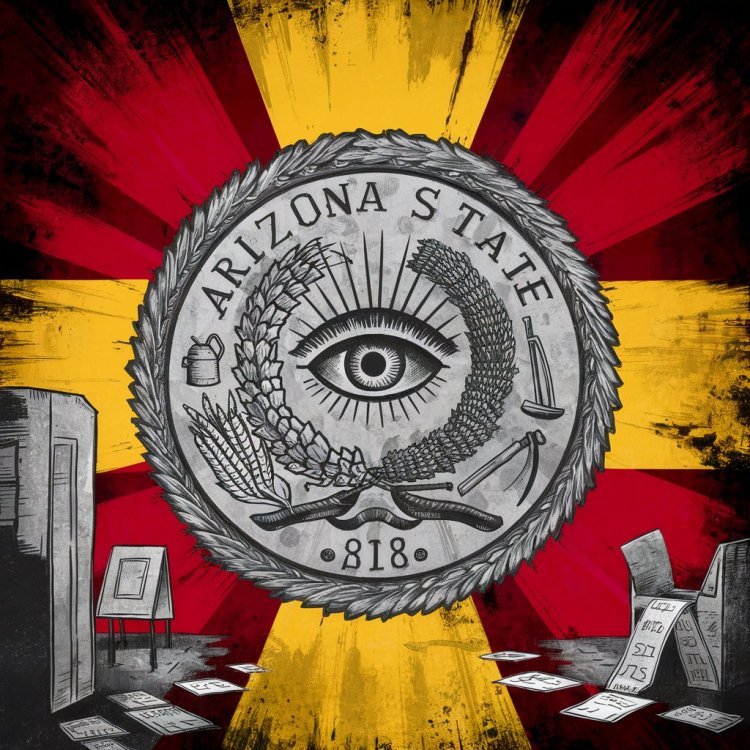John Eastman and the Arizona "Fake Electors" Scheme: A Legal Drama Unfolding
John Eastman, a former lawyer for President Donald Trump, faces legal charges for his alleged role in the Arizona "fake electors" scheme, a controversial plan aimed at overturning the 2020 presidential election results in Arizona.

John Eastman and the Arizona "Fake Electors" Scheme: A Legal Drama Unfolding (SEO Optimized)
The 2020 US presidential election continues to cast a long shadow, with the Arizona "fake electors" scheme case taking center stage. John Eastman, a former lawyer for President Donald Trump, stands accused of playing a pivotal role in this scheme. This case presents a compelling legal drama with significant implications for American democracy. Let's delve deeper into the accusations, Eastman's defense, the case's significance, and the potential legal hurdles ahead.
The Allegations: Orchestrating a False Narrative
Prosecutors paint a picture of Eastman actively working to undermine the legitimate results of the Arizona election. Here's a breakdown of the key allegations:
- False Slate of Electors: Eastman allegedly advised the creation of a slate of Republican electors who would vote for Trump, despite Joe Biden's certified victory in Arizona. This act aimed to cast doubt on the election's legitimacy and potentially create a scenario where these "fake electors" could be used to overturn the results.
- Pressuring State Lawmakers: Prosecutors further allege that Eastman pressured Arizona state lawmakers to take steps that would have reversed Biden's win. This pressure could have involved efforts to influence recounts, audits, or other actions aimed at manipulating the official results.
- Pence's Authority to Reject Electors: A central element of the alleged scheme involved Eastman's legal advice to then-Vice President Mike Pence. Eastman reportedly argued that Pence had the authority to reject electors from states Trump had lost, including Arizona. This theory, based on fringe legal arguments, has been widely rejected by courts.
Eastman's Defense: Maintaining Innocence
John Eastman maintains his innocence and has pleaded not guilty to all charges. Following his arraignment, he emphasized his belief that the charges are politically motivated and that he acted based on a good faith interpretation of the law. His defense is likely to focus on the following arguments:
- Good Faith Legal Advice: Eastman's lawyers will likely argue that his actions stemmed from a genuine belief in the legal theories he presented. They might claim he was simply providing legal counsel based on his understanding of the law, not engaging in criminal activity.
- Lack of Intent: The prosecution must prove beyond a reasonable doubt that Eastman intended to commit a crime. The defense will likely challenge this by portraying his actions as part of a legitimate legal strategy, not a deliberate attempt to defraud the system.
- Potential Immunities: Eastman's role as a legal advisor could potentially offer some level of immunity from prosecution. His defense might argue that his communications with the Trump campaign were protected by attorney-client privilege.
The Case's Significance: A Watershed Moment?
The Arizona "fake electors" case carries significant weight for several reasons:
- First Criminal Charges: This marks the first criminal charges brought against a high-profile individual associated with attempts to overturn the 2020 election. It signals a willingness by prosecutors to hold individuals accountable for potential election subversion.
- Potential Precedent: The outcome of this case could set a crucial precedent for future elections. A conviction could deter similar attempts to undermine democratic processes, while an acquittal might embolden those seeking to manipulate future elections.
- Accountability for Powerful Figures: The case raises questions about the potential legal consequences for powerful individuals involved in election subversion attempts. Will those in positions of authority be held to a higher standard, or will their influence shield them from accountability?
Legal Hurdles and Uncharted Territory
The legal battle ahead is likely to be complex and multifaceted. Here are some potential hurdles that could arise:
- The Legal Basis for the Scheme: Prosecutors must demonstrate that Eastman's actions constituted a crime and that he intended to defraud the legal process. The defense will likely counter by arguing that the legal theories, however flawed, were not inherently criminal.
- Intent and Knowledge: Proving Eastman's specific intent to commit a crime will be crucial. This involves demonstrating that he knowingly participated in a scheme to undermine the legitimate election results.
- Unveiling the Full Picture: The extent of Trump's involvement and potential coordination with Eastman remains a key question. If the prosecution can demonstrate a clear link between Trump and the scheme, it could strengthen their case.
Looking Ahead: A Nation Watching
The Arizona "fake electors" case is expected to go to trial in November 2024. With heightened public interest and significant ramifications, the case will be closely watched by legal scholars, political observers, and the American public alike. This trial could serve as a critical test for American democracy, highlighting the importance of upholding the rule of law and ensuring the integrity of future elections.
What's Your Reaction?




















